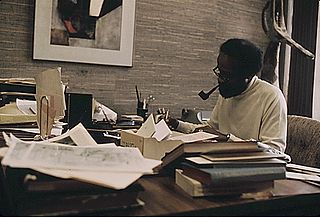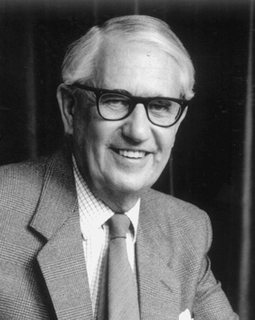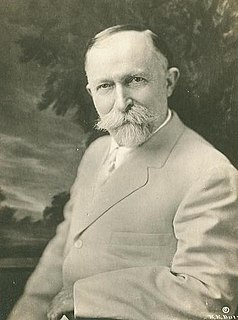Top 1007 Amendment 4 Quotes & Sayings - Page 17
Explore popular Amendment 4 quotes.
Last updated on April 20, 2025.
Who freed the slaves? To the extent that they were ever u2018freed,' they were freed by the Thirteenth Amendment, which was authored and pressured into existence not by Lincoln but by the great emancipators nobody knows, the abolitionists and congressional leaders who created the climate and generated the pressure that goaded, prodded, drove, forced Lincoln into glory by associating him with a policy that he adamantly opposed for at least fifty-four of his fifty-six years of his life.
When the Jews were being persecuted by the Nazis in 1944 we passed the War Refugee Act, which focused on rescuing Jews, a religious group. But if the religious group is the subject of the persecution based on their religion, it's perfectly OK for a First Amendment-bound society to emphasize their rescue, just as it is perfectly OK to emphasize the fact that many, if not all of the perpetrators of Islamic terrorism, come from countries with a history of supporting terrorism.
Phil Robertson and his family are great citizens of the State of Louisiana. The politically correct crowd is tolerant of all viewpoints, except those they disagree with. I don’t agree with quite a bit of stuff I read in magazine interviews or see on TV. In fact, come to think of it, I find a good bit of it offensive. But I also acknowledge that this is a free country and everyone is entitled to express their views. In fact, I remember when TV networks believed in the First Amendment. It is a messed up situation when Miley Cyrus gets a laugh, and Phil Robertson gets suspended.
Of the six men who have done most to make America the wonder and the joy she is to all of us, not one could be the citizen of a government so constituted; for Washington and Franklin and Jefferson, certainly the three mightiest leaders in our early history, were heretics in their day, Deists, as men called them; and Garrison and Lincoln and Sumner, certainly the three mightiest in these later times, would all be disfranchised by the proposed amendment. Lincoln could not have taken the oath of office had such a clause been in the Constitution.
Alcoholism, the opium habit and tobaccoism are a trio of poison habits which have been weighty handicaps to human progress during the last three centuries. In the United States, the subtle spell of opium has been broken by restrictive legislation; the grip of the rum demon has been loosened by the Prohibition Amendment to the Constitution, but the tobacco habit still maintains its strangle-hold and more than one hundred million victims of tobaccoism daily burn incense to the smoke god.
The "establishment of religion" clause of the First Amendment means at least this: Neither a state nor the Federal Government can set up a church. Neither can pass laws which aid one religion, aid all religions, or prefer one religion over another. Neither can force nor influence a person to go to or to remain away from church against his will or force him to profess a belief or disbelief in any religion.
The First Amendment guarantees liberty of human expression in order to preserve in our Nation what Mr. Justice Holmes called a "free trade in ideas." To that end, the Constitution protects more than just a man's freedom to say or write or publish what he wants. It secures as well the liberty of each man to decide for himself what he will read and to what he will listen. The Constitution guarantees, in short, a society of free choice.
All these people talk so eloquently about getting back to good old-fashioned values. Well, as an old poop I can remember back to when we had those old-fashioned values, and I say let's get back to the good old-fashioned First Amendment of the good old-fashioned Constitution of the United States - and to hell with the censors! Give me knowledge or give me death!
Perhaps the deterioration of American education is illustrated by the high correlation between the number of years a person has attended school and his inability to understand the words "the right of the people to keep and bear arms shall not be infringed." It is more likely, though, that those who interpret the Second Amendment to preclude an individual right to own guns are driven by their political agenda. Whichever the case, they do themselves no credit when they tell us that a simple, elegant sentence means the opposite of what it clearly says.
I believe in the soul ... the small of a woman's back, the hanging curveball, high fiber, good scotch, that the novels of Susan Sontag are self-indulgent, overrated crap. I believe Lee Harvey Oswald acted alone. I believe there ought to be a constitutional amendment outlawing Astroturf and the designated hitter. I believe in the sweet spot, soft-core pornography, opening your presents Christmas morning rather than Christmas Eve, and I believe in long, slow, deep, soft, wet kisses that last three days.
In the States, you have the First Amendment. People feel the freedom to speak and the right to be heard. And they kind of push the message: "It's a free country." Everybody has the right to say whatever they want to say. But in the Middle East, culture is your guide. You have to ask, is it culturally okay to say something like that? Is it culturally okay, for example, to show a woman giving birth? As Arabs watching such a scene in an American film it's okay, but when it comes to the Arabic context, we're like, "How dare you?" So it's how you present it.
To get that word, male, out of the Constitution, cost the women of this country fifty-two years of pauseless campaign; 56 state referendum campaigns; 480 legislative campaigns to get state suffrage amendments submitted; 47 state constitutional convention campaigns; 277 state party convention campaigns; 30 national party convention campaigns to get suffrage planks in the party platforms; 19 campaigns with 19 successive Congresses to get the federal amendment submitted, and the final ratification campaign.
Any unarmed people are slaves, or are subject to slavery at any given moment. If the guns are taken out of the hands of the people and only the pigs have guns, then it's off to the concentration camps, the gas chambers, or whatever the fascists in America come up with. One of the democratic rights of the United States, the Second Amendment to the Constitution, gives the people the right to bear arms. However, there is a greater right; the right of human dignity that gives all men the right to defend themselves.
If you have an internet service provider that's capable of slowing down other sites, or putting other sites out of business, or favoring their own friends and affiliates and customers who can pay for fast lanes, that's a horrible infringement on free speech. It's censorship by media monopolies. It's tragic: here we have a technology, the internet, that's capable really of being the town square of democracy, paved with broadband bricks, and we are letting it be taken over by a few gatekeepers. This is a first amendment issue; it's free speech versus corporate censorship.
The classic example I've used - I'm sure you've heard me say it before - was Mark Begich in Alaska who was here for a full six years and never had a roll call vote on an amendment on the floor of the Senate, which Dan Sullivan tells me he used on virtually a daily basis. So the notion that protecting all of your members from votes is a good idea politically, I think, has been pretty much disproved by the recent [Barack Obama] election.
Reading their letters and the First Amendment of the US Constitution, I infer that this nation's founders noted that religions have been at the center of great deal of trouble, so they precluded the US government from getting involved in religion, i.e. "... shall make no law respecting an establishment of religion, or prohibiting the free exercise thereof..." Over the centuries, various religions have laid claim to various morals; consider the difficulties outsiders are having today in the Middle East, for example.
Up until the late unpleasantness of the Civil war, then, the right of secession was more or less taken for granted in many quarters, and there has never been any amendment or even a Supreme Court decision saying it's improper. - Samual Francis, Secession May Be Legal But Not Expedient, Conservative Chronicles
If there be any among us who wish to dissolve the Union or to change its republican form, let them stand undisturbed, as monuments of the safety with which error of opinion may be tolerated where reason is left free to combat it.
The broadening of the economic order which came to be seated in the individual property owner... dramatized by Jefferson's purchase of the Louisiana Territory... "The supremacy of corporate economic power... consolidated by the Supreme Court decision of 1886 which declared that the Fourteenth Amendment protected the corporation... [the New Deal, leading to], within the political arena, as well as in the corporate world itself, competing centers of power that challenged those of the corporate directors.
We shall some day be heeded, and when we shall have our amendment to the Constitution of the United States, everybody will think it was always so, just exactly as many young people believe that all the privileges, all the freedom, all the enjoyments which woman now possesses always were hers. They have no idea of how every single inch of ground that she stands upon today has been gained by the hard work of some little handful of women of the past.
I've reported in countries where leaders not only complain about a critical press, but also try to shut it down, throwing reporters in prison or worse. I've seen my colleagues risk their lives and, with increasing frequency, lose their lives in their pursuit of the truth. We are not about to stop doing our jobs because yet another president is unhappy with what he reads or hears or sees on TV news. There is a reason the founders put freedom of the press in the very first amendment to the Constitution.
Religion should be subject to commonsense appraisal and rational review, as openly discussible as, say, politics, art and the weather. The First Amendment, we should recall, forbids Congress both from establishing laws designating a state religion and from abridging freedom of speech. There is no reason why we should shy away from speaking freely about religion, no reason why it should be thought impolite to debate it, especially when, as so often happens, religious folk bring it up on their own and try to impose it on others.
Where the preamble declares, that coercion is a departure from the plan of the holy author of our religion, an amendment was proposed by inserting "Jesus Christ," so that it would read "A departure from the plan of Jesus Christ, the holy author of our religion;" the insertion was rejected by the great majority, in proof that they meant to comprehend, within the mantle of its protection, the Jew and the Gentile, the Christian and Mohammedan, the Hindoo and Infidel of every denomination.
Even if the flag burning amendment does become law, the larger problem will remain of how to respectfully dispose of older, tattered flags. Well, fortunately the U.S. official Flag Code has a suggestion about this. "The flag, when it is in such a condition that it is no longer a fitting emblem of display, should be destroyed in a dignified way, preferably by burning." Owwwwcchh. In response, the House Republicans are calling for tattered flags to be kept alive via a feeding tube.
The functionaries of public power rarely strengthen in their dispositions to abridge it, and an unorganized call for timely amendment is not likely to prevail against an organized opposition to it. We are always told that things are going on well; Why change them? 'Chi sta bene, no si mueve,' said the Italian, 'let him who stands well, stand still.' This is true; and I verily believe they would go on well with us under an absolute monarch, while our present character remains, of order, industry and love of peace, and restrained as he would be, by the proper spirit of the people.
... if you're poor and ignorant, with a child, you're a slave. Meaning that you're never going to get out of it. These women are in bondage to a kind of slavery that the 13th Amendment just didn't deal with. The old master provided food, clothing and health care to the slaves because he wanted them to get up and go to work in the morning. And so on welfare: you get food, clothing and shelter--you get survival, but you can't really do anything else. You can't control your life.
I've always wondered if people who block each other from expressing their opinions do so because they have so little confidence in their own. To me, encountering an opposing point of view is a chance to gain a deeper understanding of the issues at stake and develop my own point of view. But the first thing you've got to do is you've got to let people speak and you've got to listen. And that's what the first amendment is all about. That's what really distinguishes this country from others.
The first phrase of the First Amendment spoke to the freedom uppermost in Jefferson's mind when it provided that, 'Congress shall make no law respecting an establishment of religion, or prohibiting the free exercise thereof.' Here a double guarantee could be found: first, that government would do nothing to give official endorsement to a religion or to set one faith above another; second, that government would do nothing to inhibit the freedom of religion.
Those stories weren't being written at all - stories about women's inner lives and outer activism. We've come miles and miles, but we still don't have an equal rights amendment yet. We don't have equal pay yet. There's a lot of blind misogyny that's not personal, but institutionalized. We still have work to do, but even just looking at those old Ms. Magazines is a cool thing to do - to see how daring they were. They just went right into the belly of the beast.
We have a right to expect that the best trained, the best educated men on the Pacific slope, the Rocky Mountains, and great plains States will take the lead in the preservation and right use of forests, in securing the right use of waters, and in seeing that our land policy is not twisted from its original purpose, but is perpetuated by amendment, by change when such change is necessary in the life of that purpose, the purpose being to turn the public domain into farms each to be the property of the man who actually tills it and makes his home in it.
The prohibition amendment to the Constitution requires the Congress. and the President to provide adequate laws to prevent its violation. It is my duty to enforce such laws.To prevent smuggling, the Coast Card should be greatly strengthened, and a supply of swift power boats should be provided. The major sources of production should be rigidly regulated, and every effort should be made to suppress interstate traffic... It is the duty of a citizen not only to observe the law but to let it be known that he is opposed to its violation.
I do ask every publisher, every editor, and every newsman in the nation to reexamine his own standards, and to recognize the nature of our country's peril. In time of war, the government and the press have customarily joined in an effort based largely on self-discipline, to prevent unauthorized disclosures to the enemy. In time of "clear and present danger," the courts have held that even the privileged rights of the First Amendment must yield to the public's need for national security.
We can ignore even pleasure. But pain insists upon being attended to. God whispers to us in our pleasures, speaks in our conscience, but shouts in our pains: it is His megaphone to rouse a deaf world....No doubt pain as God's megaphone is a terrible instrument; it may lead to final and unrepented rebellion. But it gives the only opportunity the bad man can have for amendment. it removes the veil; it plants the flag of truth within the fortress of the rebel soul.
During the Suffragette revolt of 1913 I[urged] that what was needed was not the vote, but a constitutional amendment enactingthat all representative bodies shall consist of women and men in equal numbers, whether elected or nominated or coopted or registered or picked up in the street like a coroner's jury. In the case of elected bodies the only way of effecting this is by the Coupled Vote. The representative unit must not be a man or a woman but a man and a woman.
I think basic disease care access and basic access to health care is a human right. If we need a constitutional amendment to put it in the Bill of Rights, then that's what we ought to do. Nobody with a conscience would leave the victim of a shark attack to bleed while we figure out whether or not they could pay for care. That tells us that at some level, health care access is a basic human right. Our system should be aligned so that our policies match our morality. Then within that system where everybody has access, we need to incentivize prevention, both for the patient and the provider.
The 14th Amendment was passed after the Civil War to apply to former slaves to ensure that they are treated like all other citizens. It never did have anything to do with gay marriage. It was never intended to have anything to do with gay marriage or animal marriage or any other kind of social contract. It was specific to slavery, and after the Civli War.
Some men look at Constitutions with sanctimonious reverence, and deem them, like the ark of the covenant, too sacred to be touched. They ascribe to the men of the preceding age a wisdom more than human, and suppose what they did to be beyond amendment. I knew that age well; I belonged to and labored with it. It deserved well of its country. It was very like the present, but without the experience of the present; and forty years of experience in Government is worth a century of book-reading; and this they would say themselves, were they to rise from the dead.
For the Second Amendment to do its job, the other side must become much better informed. I watched an action-adventure program last night that asserted that the famous AK-47 - the original peoples' rifle (and Authority's greatest mistake) - is rare in this country, and that the only ones here were originally smuggled in from the Middle East, or possibly from South America. The idiots who wrote this mess seemed unaware that after legal imports - mostly from China - were illegally cut off by executive order, they began to be manufactured here.
At the time, liberals didn't understand that they had First Amendment rights. So, I was doing cartoons in this narrative cartoon form about subject surrounding that and as I was turned down by editor after editor at each publishing house, I began to notice on their desks this new newspaper called The Village Voice, which I then went and picked up and thought, well my god, these editors that were turning me down all, whom tell me how much they like my stuff, but they don't know how to market it because nobody knows who I am. If I got into this paper, they would know who I am.
Any test that turns on what is offensive to the community's standards is too loose, too capricious, too destructive of freedom of expression to be squared with the First Amendment. Under that test, juries can censor, suppress, and punish what they don't like, provided the matter relates to "sexual impurity" or has a tendency "to excite lustful thoughts." This is community censorship in one of its worst forms. It creates a regime where, in the battle between the literati and the Philistines, the Philistines are certain to win.
"But even if he has been wicked," pursued Rose, "think how young he is; think that he may never have known a mother's love, or the comfort of a home; that ill-usage and blows, or the want of bread, may have driven him to herd with men who have forced him to guilt. Aunt, dear aunt, for mercy's sake, think of this, before you let them drag this sick child to a prison, which in any case must be the grave of all his chances of amendment."
In recent years it has been suggested that the Second Amendment protects the "collective" right of states to maintain militias, while it does not protect the right of "the people" to keep and bear arms... If anyone entertained this notion in the period during which the Constitution and Bill of Rights were debated and ratified, it remains one of the most closely guarded secrets of the 18th century, for no known writing surviving from the period between 1787 and 1791 states such a thesis.
No-knock police raids destroy Americans' right to privacy and safety. People's lives are being ruined or ended as a result of unsubstantiated assertions by anonymous government informants. ... Unfortunately, no-knock raids are becoming more common as federal, state, and local politicians and law enforcement agencies decide that the war on drugs justified nullifying the Fourth Amendment. ... No-knock raids in response to alleged narcotics violations presume that the government should have practically unlimited power to endanger some people's lives in order to control what others ingest.
While the machinery of law enforcement and indeed the nature of crime itself have changed dramatically since the Fourth Amendment became part of the Nation's fundamental law in 1791, what the Framers understood then remains true today - that the task of combating crime and convicting the guilty will in every era seem of such critical and pressing concern that we may be lured by the temptations of expediency into forsaking our commitment to protecting individual liberty and privacy.
Breaking the United States up into a number of pieces could be very good for the integration of those new nations with the rest of the world and the international law whose primary enemy is now the United States government. I think that it would be very good for democracy, for people to be within some hundreds of miles of their nation's capital, as they are in many other countries, so that they didn't have to travel thousands of miles to protest, to exercise their First Amendment rights, but that is the current state of affairs in this overly large, imperial nation.
I understand that unless you have a government of laws, rather than a government of people, you cannot protect dissent. And I understand, as a woman who probably would have been burned in the marketplace for witchcraft only about 200 years ago, that I need the First Amendment more than anybody does. And that even if I am repelled by child pornography or Bob Guccione's productions, that I have to protect those things, because essentially it's in my self-interest to do so.
Get rid of the guns. We had the Second Amendment that said you have the right to bear arms. I haven't seen the British really coming by my house looking for it. And besides, the right to bear arms is not an absolute right anyway, as New York's Sullivan Law proves. We talk about ourselves as a violent society, and some of that is right and some of it is claptrap. But I think if you took away the guns, and I mean really take away the guns, not what Congress is doing now, you would see that violent society diminish considerably.











































